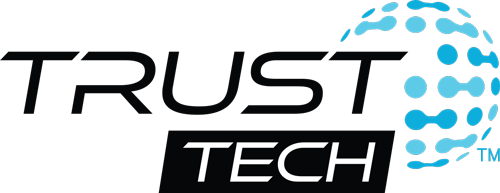At Trust Tech, we understand the challenges faced by small businesses and public sector organizations when it comes to budgeting for their information technology (IT) needs. Effective budgeting is crucial for optimizing IT resources and ensuring smooth operations. In this blogpost, we’ll explore five common mistakes to avoid when crafting your IT budget, covering licensing, hardware, cloud usage, security, and managed services.
- Ignoring Software Licensing Audits: One of the most significant mistakes many organizations make is overlooking software licensing audits. Improperly managing software licenses can result in hefty fines and legal implications, causing a major financial setback. To avoid this, conduct regular audits to ensure that you’re compliant with all licensing agreements. Consider implementing software asset management tools to track licenses and usage accurately, enabling you to optimize your software expenses and avoid unnecessary penalties.
- Underestimating Hardware Costs: Hardware is the backbone of your IT infrastructure, and underestimating its costs can lead to operational disruptions and potential security risks. When budgeting for hardware, account for not only the initial purchase but also maintenance, upgrades, and replacements over time. Assess your current hardware’s lifecycle and create a plan to refresh aging equipment before it becomes a hindrance to productivity.
- Failing to Forecast Cloud Usage: The adoption of cloud services has become increasingly prevalent due to its flexibility and scalability. However, not forecasting your cloud usage properly can result in unexpected expenses. To avoid cloud budgeting pitfalls, track your actual usage, and review your cloud needs periodically. Consider employing cloud cost management tools that provide insights into usage patterns and suggest optimization opportunities, allowing you to keep your cloud spending in check.
- Neglecting IT Security: Cybersecurity is paramount in today’s digital landscape. Neglecting IT security in your budget can leave your organization vulnerable to data breaches, ransomware attacks, and other security threats. Allocate sufficient funds for robust security measures, including firewalls, antivirus software, intrusion detection systems, and regular security assessments. Investing in proactive security solutions can save you significant costs associated with recovering from a security breach.
- Overlooking Managed Services: Small businesses and public sector organizations often struggle with limited IT resources. Overlooking the benefits of managed IT services can lead to inefficiencies, increased downtime, and overworked IT staff. Incorporate managed services into your budget to leverage the expertise and support of a dedicated IT team. Managed service providers can help optimize your IT infrastructure, ensure proactive maintenance, and provide round-the-clock support, all while keeping costs predictable and controlled.
Conclusion: Crafting an effective IT budget is a critical task that can significantly impact the success of small businesses and public sector organizations. By avoiding these five common mistakes related to licensing, hardware, cloud usage, security, and managed services, you can optimize your IT budget, enhance operational efficiency, and ensure a secure and smooth digital environment. Remember that strategic budgeting not only saves costs but also empowers your organization to leverage technology effectively to achieve its goals.

